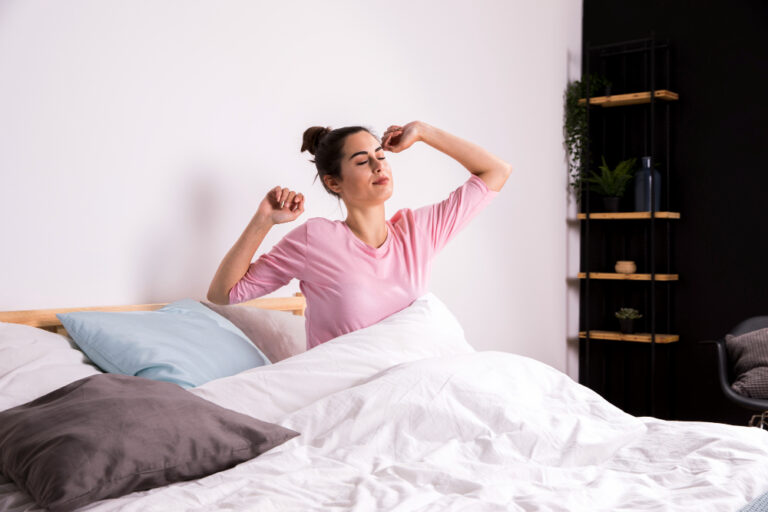How to Fall Asleep Fast? [10 Proven Ways for Better Rest]
just closing your eyes; it restores energy, sharpens focus, and keeps your body in balance. Without it, even simple tasks feel heavier, and stress easily takes control. Falling asleep quickly doesn’t always require medication or complicated routines.
Small, practical shifts in your bedtime habits can make a remarkable difference. From adjusting your environment to adopting calming rituals, these changes guide your body into a natural state of relaxation.
A cool, quiet room, a consistent sleep schedule, and intentional wind-down activities help signal your brain that it’s time to rest.
Simple lifestyle choices during the day, like limiting caffeine or getting natural light, also play a role in setting the stage for a restful night. Let’s explore ten effective ways that can help you fall asleep faster and wake up refreshed.
10 Proven Ways to Fall Asleep Fast
Sleep gives the body and mind a chance to rest, recover, and reset. Yet many people spend hours tossing and turning. Simple changes in daily habits can make falling asleep much easier. Instead of lying awake, the right steps can help you relax, calm your mind, and drift into sleep faster.
This guide shares ten proven ways to fall asleep fast. Each idea is easy to follow and works naturally with your body’s sleep cycle. Let’s get into the details.
1. Keep a Consistent Sleep Schedule
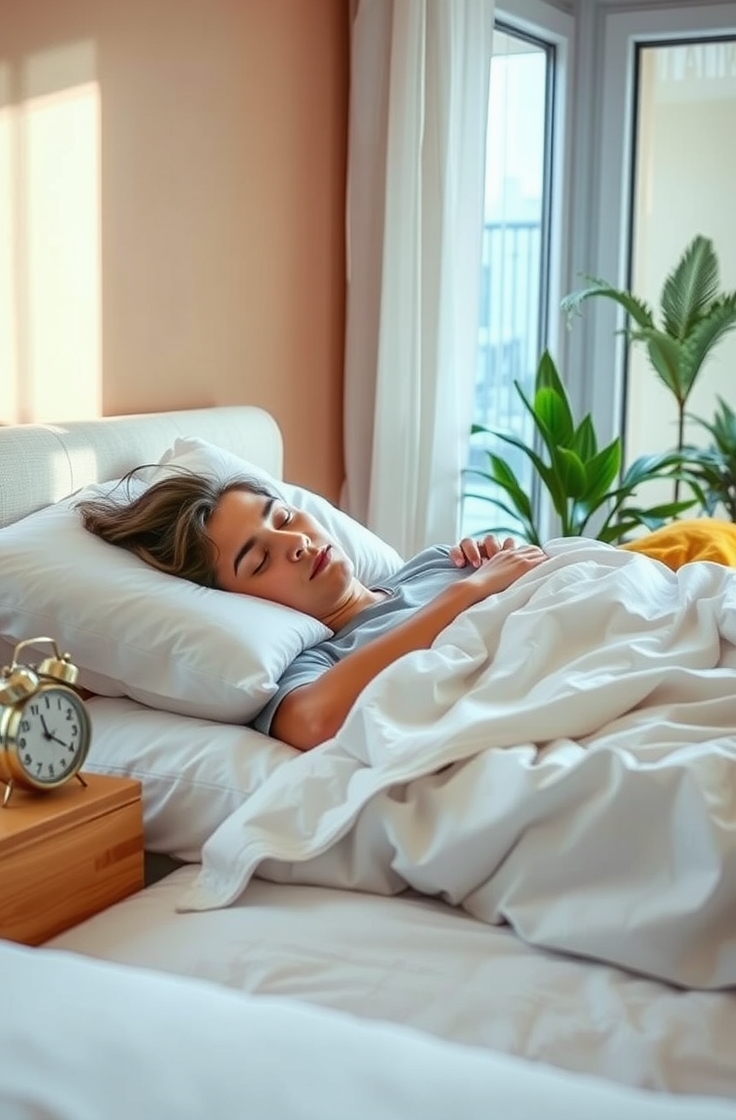
The body loves routine. Going to bed and waking up at the same time each day sets a natural rhythm. A stable schedule trains your internal clock, also called the circadian rhythm, to know when it is time to rest.
Think about weekends. Many people stay up late and then struggle on weekdays. That small shift can throw the body off balance. A steady pattern works better. Even one hour of difference can delay sleep.
Set a regular bedtime that gives at least seven to eight hours of rest. Try to wake up at the same time daily, even on days off. Over time, your body will respond. Sleep will come faster, and mornings will feel less rough.
2. Limit Screen Time Before Bed
Phones, tablets, and TVs give off blue light. This light tricks the brain into thinking it is still daytime. That delay makes it harder for the body to produce melatonin, the sleep hormone.
Instead of scrolling late at night, turn screens off at least an hour before bed. Replace them with quiet activities. Reading a paper book, listening to soft music, or writing in a journal can help calm the mind.
If you need to use your device, lower brightness and use night mode. Blue light filters reduce the impact. But cutting screen time completely is more effective.
3. Create a Relaxing Bedtime Routine
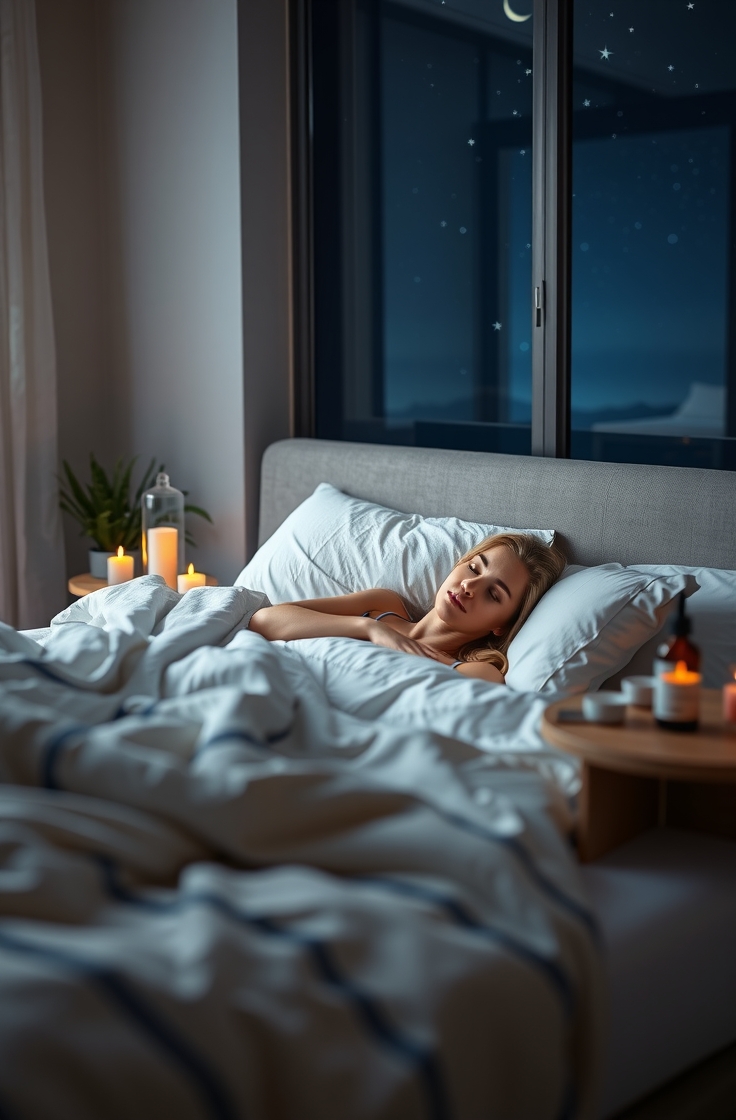
The body prepares for sleep with signals. A calming routine tells the brain it is time to slow down. Repeating the same actions each night builds a strong connection.
For example, take a warm shower, put on comfortable clothes, and dim the lights. Some people like light stretching. Others enjoy sipping a caffeine-free herbal tea. Gentle breathing or meditation also works well.
The key is consistency. Do the same steps at the same time each night. Soon your mind will link these actions with rest. Sleep will follow more easily.
4. Keep the Bedroom Cool and Dark
The right environment makes a big difference. The body naturally lowers its temperature at night. A cooler bedroom supports this process. Experts suggest keeping the room between 60 and 67 degrees Fahrenheit.
Darkness also plays a role. Even small amounts of light can disturb sleep. Streetlights, a glowing alarm clock, or standby lights from electronics can keep the brain alert. Use blackout curtains, eye masks, or remove glowing devices.
Soft, clean bedding and a quiet setting also help. Comfort tells the body it is safe to rest. A peaceful space improves both the speed of falling asleep and the quality of rest through the night.
5. Avoid Caffeine and Heavy Meals at Night

Caffeine is a stimulant. Coffee, tea, chocolate, and energy drinks can stay in the body for many hours. Drinking them late in the day can make falling asleep difficult. Try to limit caffeine intake after mid-afternoon.
Food also matters. Heavy meals close to bedtime force the body to keep working. This can lead to discomfort, indigestion, or acid reflux. A light snack is fine, but large dinners should be eaten earlier in the evening.
If you feel hungry before bed, try a small portion of food that supports rest. Examples include a banana, warm milk, or a handful of nuts. These light choices give comfort without disrupting sleep.
6. Practice Breathing Exercises
Stress and racing thoughts often block sleep. Breathing exercises slow the heart rate and relax the body. They also shift focus away from busy thoughts.
A simple method is the 4-7-8 technique. Breathe in through the nose for four seconds. Hold the breath for seven seconds. Slowly exhale through the mouth for eight seconds. Repeat several times.
Another option is belly breathing. Place a hand on your stomach. Inhale deeply so the stomach rises, then exhale slowly. This style of breathing calms the nervous system and makes sleep easier.
7. Reduce Daytime Naps

Naps can refresh energy, but long or late naps may affect nighttime sleep. Sleeping too much during the day can reduce the body’s natural tiredness at night.
If you enjoy naps, keep them short. Twenty to thirty minutes is enough. Early afternoon works better than evening. That way, naps provide a boost without harming the sleep cycle.
Balance is important. Good nighttime rest should always be the main goal. Naps should not replace deep sleep at night.
8. Stay Physically Active During the Day
Movement during the day helps the body rest at night. Exercise reduces stress, increases energy, and improves sleep quality. Even light activity makes a difference.
A walk in the morning sun can set the circadian rhythm. Stretching, yoga, or a simple workout in the afternoon can also help. Just avoid heavy exercise too close to bedtime, as it may raise heart rate and body temperature.
Regular activity builds stronger sleep patterns. Over time, your body will feel naturally ready to rest at night.
9. Manage Stress and Calm the Mind
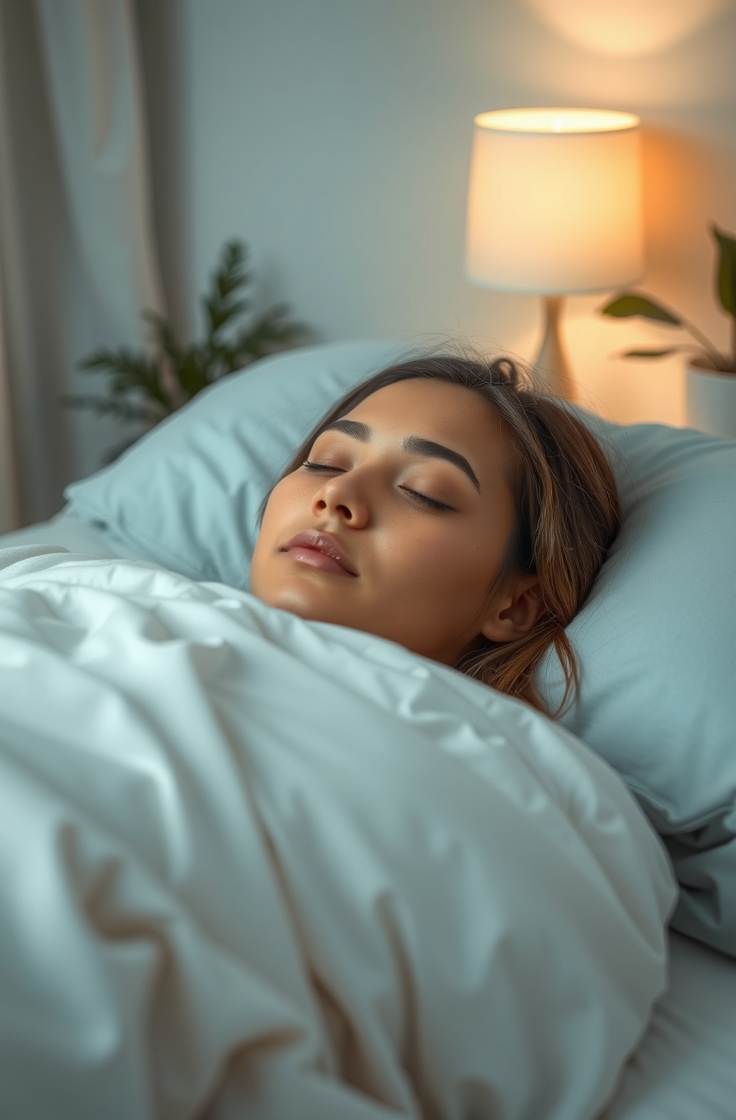
Stress is one of the biggest reasons people cannot fall asleep. Worries and thoughts keep the mind awake. Finding healthy ways to manage stress can improve sleep speed and quality.
Some methods include writing down thoughts before bed. A journal helps clear the mind. Gentle meditation or guided relaxation also brings peace. Even simple gratitude exercises shift focus away from stress.
Another method is to set a “worry time” earlier in the day. Spend 10 minutes writing down concerns and solutions. That way, your mind is less likely to race at night.
10. Use the Bed Only for Sleep
The brain connects places with activities. If you eat, watch TV, or work in bed, the brain stops linking the bed with sleep. That weakens the sleep signal.
Keep the bed for rest and intimacy only. Avoid work, meals, or phone use while in bed. Over time, this builds a strong mental link. Lying in bed will tell your brain it is time to sleep.
If you cannot fall asleep after 20 minutes, get up. Do a quiet activity in dim light, such as reading or listening to calm music. Return to bed only when you feel sleepy. This strengthens the habit of falling asleep quickly in bed.
FAQs
1. How many hours of sleep do adults need?
Most adults need 7 to 9 hours of sleep each night. The exact number depends on age, lifestyle, and health.
2. Can drinking water before bed affect sleep?
Drinking too much water right before bed can cause frequent trips to the bathroom. It is better to stay hydrated during the day and drink less right before bedtime.
3. What is the best position to sleep in?
Sleeping on the back or side is usually better for the spine and breathing. Stomach sleeping may cause discomfort or strain.
4. Does exercise before bed keep you awake?
Intense exercise too close to bedtime may keep you awake. Light stretching or yoga is fine, but heavy workouts are best earlier in the day.
5. Is it normal to wake up during the night?
Yes, brief wake-ups are common. Most people wake several times but fall back asleep quickly. Long wake periods may suggest stress, diet issues, or sleep disorders.
6. Can herbal teas help with sleep?
Yes, teas like chamomile, lavender, or valerian root can promote relaxation. Avoid teas with caffeine.
7. What should I do if I still cannot sleep after trying these methods?
If sleep problems last more than a few weeks, consult a doctor. There may be an underlying condition like sleep apnea, anxiety, or insomnia.
Conclusion
Falling asleep fast does not need to be a struggle. Small, steady changes to daily habits make a big difference. A consistent schedule, a calming routine, and a comfortable environment create the right base for restful nights.
Limiting caffeine, avoiding screens, and practicing stress relief also improve results. Each of the ten ideas in this guide supports natural rest. Try them one by one, and notice what works best for your body. With practice, falling asleep will feel easier, and waking up will feel more refreshing.

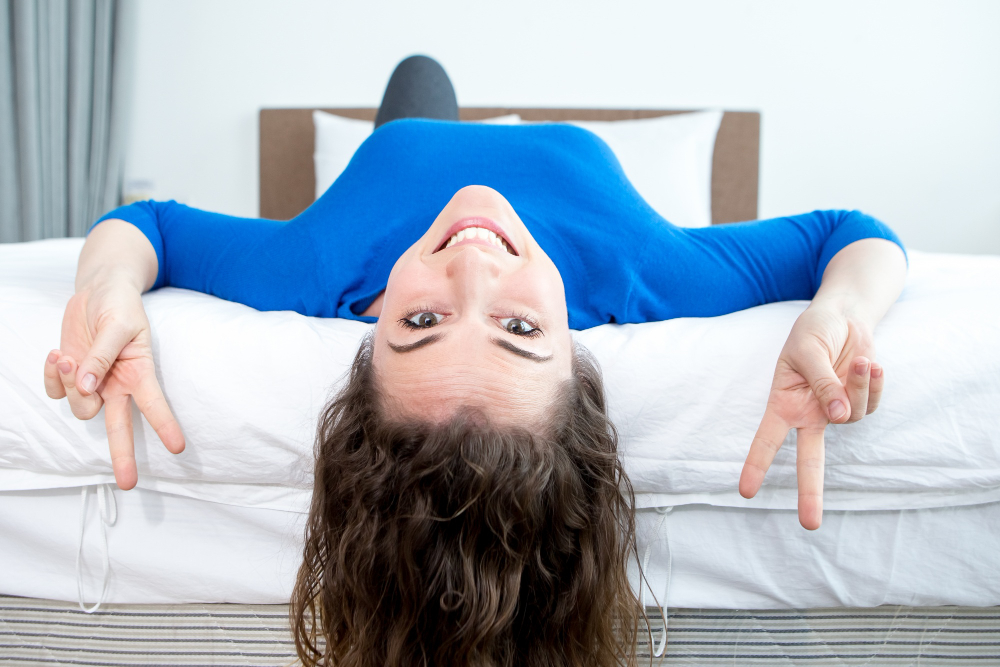


![10 Essential Mother Care Tips After Delivery [In 2025]](https://preggiebites.com/wp-content/uploads/2025/08/Mother-Care-After-Delivery-768x512.jpg)

